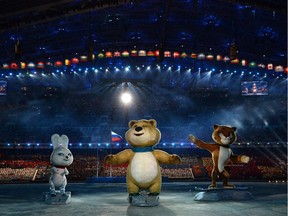Column: Calgary 2026 - Four inconvenient truths in Olympic rhetoric

Article content
As Calgary prepares for the 2026 Olympic and Paralympic vote on Nov. 13, we are increasingly concerned by the misleading rhetoric being used by both the Yes and No sides — including our elected representatives.
The most blatant example of this misleading rhetoric is the use of what we refer to as blind benchmarks. Blind benchmarks are Yes or No arguments based on simplified historical examples of past Olympic and Paralympics Games.
The idea of basing decisions on a related historical precedent is common practice in both business and life. History can offer great lessons, but only if used responsibly. To be valid, benchmarking must consider multiple perspectives and be contextualized.
A disastrous example of blind benchmarking from Canadian business history is BlackBerry. When Apple launched the iPhone in 2007, the management of BlackBerry was not concerned. Why? Because they had historic benchmarks about what customers wanted. They wanted a real keyboard and simplicity — not a touchscreen and a million apps. You know how this turned out.
So what does BlackBerry have to do with Calgary hosting an Olympic and Paralympic Games?
The decision to bid for the 2026 Games is a complex business decision requiring careful consideration. It is irresponsible for those in any position of influence to suggest that blindly benchmarking past Games offers valid guidance.
The fact is they know better. But similar to performance-enhancing drugs in sport, blind benchmarking has a singular purpose — win at all cost. Why? Because it works. However, the reality is there are four inconvenient truths that make the benchmarking of Games difficult, if not impossible:
Inconvenient Truth 1: Time Matters: The most obvious inconvenient truth is blindly using numbers from past Games to forecast future games. Measured by athletes and events, the proposal for Calgary 2026 will be double the size of Calgary 1988 and four times the size of the 1960 Squaw Valley Games. Even data from Vancouver 2010 is ancient history in the world of valid forecasting.
Inconvenient Truth 2: Place Matters: The second most inconvenient truth is blindly applying lessons from other host cities to Calgary 2026. Most people inherently see the silliness of comparing Calgary 2026 to Sochi 2014 or Beijing 2008. The place frames the political, cultural and economic dynamics of every decision. It frames the checks and balances in the system (like having a plebiscite). Place defines the skills, ethics and values of the people who will make the big and small decisions. Being lectured by leaders who suggest that Calgary 2026 could end up just like Sochi is an affront to every Calgarian.
Inconvenient Truth 3: Scope Matters: The third inconvenient truth ignores the difference between Winter and Summer Games. Summer and Winter Games have little in common beyond the rings. For example, the 2016 Summer Olympic Games had 11,238 athletes and 339 events. The 2018 Winter Olympic Games had 2,992 athletes and 102 events. So for the purpose of evaluating Calgary 2026, tune out when someone starts comparing it to London or Rio.
Inconvenient Truth 4: YOU Matter: The return on investment calculation of hosting a Games is the culmination of the above factors, overlaid with the most complex inconvenient truth of them all — YOU. This is because only you can decide how valuable sport, art, volunteerism, city brand, community pride, tourism and culture are to you, your family and your city. No economist, politician or self-declared Games’ guru can develop a magic formula to tell you the value of a Games. Blind benchmarking removes you and your family from the calculation.
In sum, blind benchmarking is being used as a tactic by both sides to mislead. Your job is to challenge them by raising the inconvenient truths they choose to ignore. Ask the hard questions and on Nov. 13 vote based on the facts and the evidence — not on someone else’s naivety; or worse — their irresponsibility.
David J. Finch is a professor and associate director at the Mount Royal University Institute for Innovation and Entrepreneurship.
Norm O’Reilly is the assistant dean of executive programs, director of the International Institute for Sport Business and Leadership and professor at the University of Guelph. He is also a Fellow at the Mount Royal University Institute for Innovation and Entrepreneurship.






Postmedia is committed to maintaining a lively but civil forum for discussion. Please keep comments relevant and respectful. Comments may take up to an hour to appear on the site. You will receive an email if there is a reply to your comment, an update to a thread you follow or if a user you follow comments. Visit our Community Guidelines for more information.